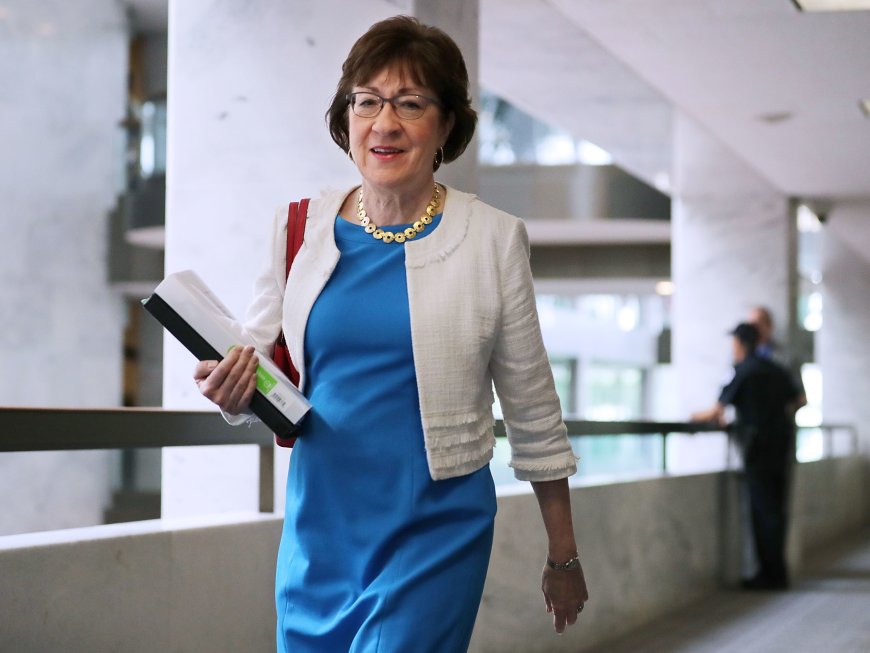Sen. Susan Collins Confronted by Protesters During Maine Ribbon-Cutting Ceremony
Senator Susan Collins faced protests during a Maine ribbon-cutting event, highlighting growing tensions between elected officials and demonstrators nationwide.

Portland, Maine — Senator Susan Collins (R-ME) faced an unexpected wave of protests during a ribbon-cutting event on Tuesday, where demonstrators loudly voiced their frustrations over her policy positions and alignment with Republican leadership. The incident highlights the increasingly confrontational environment elected officials across the United States have been experiencing in recent months.
The Event and the Disruption
The ribbon-cutting ceremony was meant to celebrate the opening of a new public facility in southern Maine. Collins, who has long emphasized her commitment to bipartisan cooperation, was delivering remarks when a group of protesters began shouting criticisms.
Eyewitnesses described the demonstration as organized, with signs and chants targeting Collins over her voting record on key national issues such as judicial confirmations, healthcare policy, and recent budget negotiations.
Security personnel quickly moved in, attempting to contain the disruption. While the event resumed after several minutes, the protests clearly overshadowed the intended message of the day.
Growing Trend of Political Confrontations
Collins is not alone in facing such challenges. Over the last year, several high-profile lawmakers, both Republican and Democrat, have been met with hecklers and demonstrations at public appearances. The intensity of these encounters reflects the polarized political climate, where even community-focused events have become stages for broader national grievances.
According to Pew Research Center, public trust in government remains near historic lows, fueling anger that often spills into direct confrontations with politicians. Analysts say this trend suggests voters are less inclined to wait for elections to express dissatisfaction.
Collins’ Response
After the event, Collins’ office issued a statement emphasizing her respect for free speech while expressing disappointment in the disruption. The statement noted that while “peaceful protest is a cornerstone of democracy,” such interruptions undermine community gatherings designed to benefit local residents.
Implications for Political Discourse
Political experts caution that while dissent is vital in a democratic system, increasingly hostile disruptions risk escalating tensions. Some fear that confrontations could discourage elected officials from engaging with the public, ultimately widening the gap between leaders and constituents.
For Collins, who faces a complex balancing act in a politically divided state, the protests serve as a reminder of the scrutiny she continues to face from both progressives and conservatives.
SEO Details
-
Slug: susan-collins-heckled-maine-ribbon-cutting
-
Meta Description: Senator Susan Collins faced protests during a Maine ribbon-cutting event, highlighting growing tensions between elected officials and demonstrators nationwide.
-
Keywords: Susan Collins protests, Maine ribbon-cutting, political confrontations, Republican senator heckled
-
Image Alt Text: Senator Susan Collins speaking at Maine ribbon-cutting event while protesters demonstrate
Article 2: President Trump Convenes White House Meeting on Post-War Gaza Strategy with Key Advisors
By Ronald Kapper
Washington, D.C. — President Donald Trump convened a high-level White House meeting this week to discuss plans for the governance and reconstruction of Gaza following the end of the Israel-Hamas conflict. The closed-door session brought together senior advisors, including Jared Kushner, and marked one of the administration’s most significant steps toward shaping a U.S.-backed vision for the region’s future.
Inside the White House Meeting
Sources familiar with the meeting described it as focused on three core areas: humanitarian relief, governance models for Gaza after Hamas, and long-term security arrangements. Kushner, who played a central role in the 2020 Abraham Accords, reportedly emphasized the need for Arab states’ involvement, particularly Egypt, Jordan, and the United Arab Emirates.
Other attendees included senior members of the National Security Council, State Department officials, and defense advisors. According to reports from The Washington Post, discussions also touched on the role of international organizations in overseeing aid distribution.
Trump’s Position on Gaza
President Trump has repeatedly stated that U.S. leadership will be crucial in ensuring stability in Gaza. During brief remarks to reporters, he noted that any solution must prevent the resurgence of militant groups while also ensuring humanitarian support reaches civilians.
“Gaza needs a fresh start,” Trump said. “We’re working with partners to create a safer, more stable future for the people there.”
Challenges Ahead
Despite the administration’s ambitions, experts warn that post-war Gaza planning is fraught with difficulties. Questions remain over who will govern the territory if Hamas loses control, and whether the Palestinian Authority or an international coalition would be acceptable to local populations.
Human rights organizations have also urged the White House to prioritize rebuilding hospitals, schools, and infrastructure damaged during the conflict, stressing that without rapid humanitarian assistance, instability could persist.
Regional and Global Implications
The meeting signals the Trump administration’s intent to position the U.S. as a key player in shaping Gaza’s future, at a time when international stakeholders are competing to influence outcomes. Analysts believe that the inclusion of Kushner suggests a return to the diplomatic framework established during the Abraham Accords, with hopes of leveraging Gulf states’ resources and political weight.














